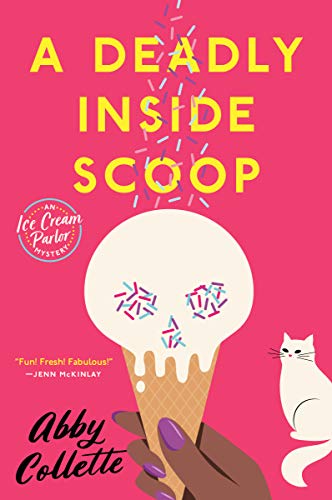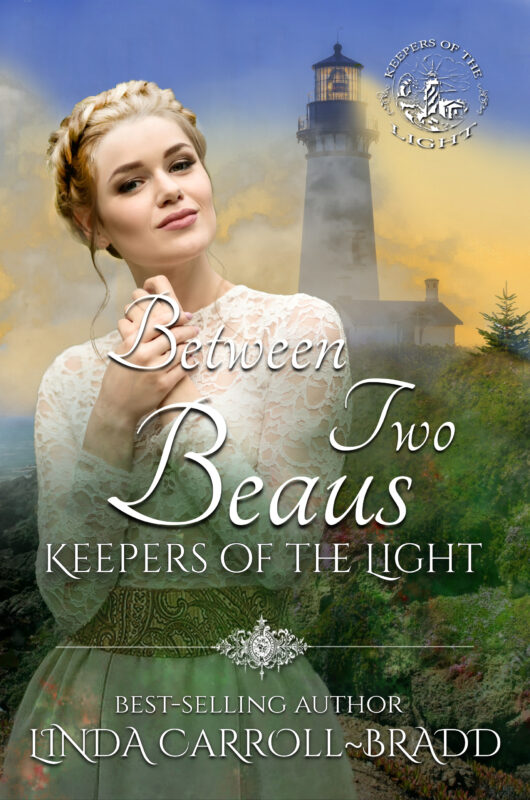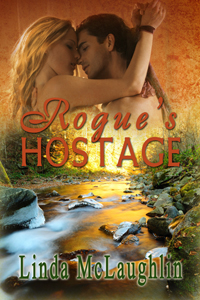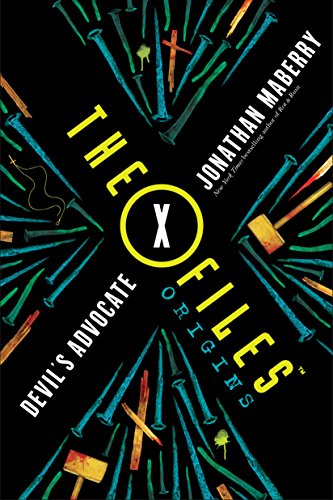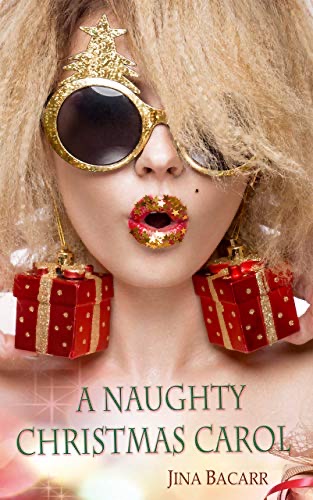Learn to Self-Publish Your Book This Month – and Have It On Sale Next Month!
September 10, 2014 by A Slice of Orange in category Archives tagged as It's Worth It, Kitty Bucholtz, OCC/RWA Online Class, Online Class, self publishing, self-publishingJust a quick reminder that I’ll be teaching “Your How-to Guide to Self-Publishing” starting on Monday, September 15, 2014. That’s this upcoming Monday!
It’s a 4-week online course that will help you take your completed manuscript, and format it and upload it so it’s finally for sale. Yay you! Someone asked, if your manuscript is not quite complete, can you take the class anyway and use a test version to go through the steps so you know what to do when you’re ready? Yes, you can!
The class will consist of written lectures with step-by-step instructions for getting your book ready, as well as videos showing you what to do. You may have already read dozens of blogs and books about how this person or that person created their self-published book, so you already know there is more than one way to go about this. I will show you how I do it and, as a class, we’ll all help each other as each person chooses their own tools (software, distributors, etc.).
For only $30 ($20 for OCC members), this class is a great deal! And half of the proceeds go to support the Orange County Chapter of RWA. Tell your friends and sign up today!
Have questions? Email me at Kitty at KittyBucholtz dot com. I hope to see you in class!
Kitty Bucholtz decided to combine her undergraduate degree in business, her years of experience in accounting and finance, and her graduate degree in creative writing to become a writer-turned-independent-publisher. Her novels, Little Miss Lovesick and Unexpected Superhero, and the free short story, “Superhero in Disguise,” are now available at most online retail sites. Superhero in the Making will be released this year.
0 0 Read more10 Bits of Writing Advice from J.R.R. Tolkien
August 18, 2014 by A Slice of Orange in category Archives tagged as #LOTR, Jenny Hansen, The Hobbit, Tolkien, writing by Jenny Hansen
by Jenny Hansen
What if J.R.R. Tolkien had never written his books? What if there had been no Hobbits and no Gandalf, no Legolas or Frodo? The world of story would be an entirely different place.
Our stories matter. They really do.
10 Tips from the “Master of Middle Earthâ€:
1. Vanity is useless.Truly, Tokien wrote his books to please himself and answer the writer inside him. He expected them to go “into the waste-paper basket†after they left his desk, not live on in popular culture. I’m not saying we don’t need to learn good story craft however, if you entertain yourself, at least you know one person that enjoyed the hell out of your book.
2. Keep writing, even through adversity.It took the man SEVEN years to write The Hobbit. He balanced a demanding day job, illness, and worry for his son who was away in the Royal Navy. I’m reminded of Laura Drake, her brick wall, and her 400+ rejections.
3. Listen to critics you trust.When his editor said, “Make it better,†he didn’t throw the advice away. He read and re-read, and he tried his best. He credits listening to knowledgeable feedback, and working to make it better, for what he considered the best scene in the Lord of the Rings: “the confrontation between Gandalf and his rival wizard, Saruman, in the ravaged city of Isengard.†Oh, and the editor he listened to? C.S. Lewis, the creator of the Chronicles of Narnia.
4. Let your interests drive your writing.Tolkien’s original interest was in languages. He took that and created new languages, and then an entire culture, around it. Our own contributor, Kathryn Craft, was a dancer, choreographer, and dance critic. She tapped all that experience to write The Art of Falling, exploring themes of love, dance, friendship, and distorted body image. that passion and truth will resonate with readers.
5. Poetry can lead to great prose.When he could not express his thoughts in the prose he wished for, he wrote much of it in verse. Authors as diverse as Charlotte Brontë and Langston Hughes started in poetry before moving to longer mediums. Next time you get stuck, you might try Tolkien’s trick of writing your scene as a poem first.
 6. Happy accidents.No matter how much you plan, happy accidents occur on the pages of every book. Jennifer Crusie calls it “the girls in the basement,†saying they hand her up treasures as she writes. Others might call it “the muse.†One more kick in the pants from my criitique partner, Laura Drake: If you don’t put your butt in the chair and do the work, you won’t have any “happy accidents.â€
6. Happy accidents.No matter how much you plan, happy accidents occur on the pages of every book. Jennifer Crusie calls it “the girls in the basement,†saying they hand her up treasures as she writes. Others might call it “the muse.†One more kick in the pants from my criitique partner, Laura Drake: If you don’t put your butt in the chair and do the work, you won’t have any “happy accidents.â€
7. Dreams give us inspiration. All of us have dreams so strong, they push us to the page. But what about literal dreams? Angela Ackerman at Writers Helping Writers did a great post called How to Mine Your Dreams for Story Gold. When Tolkien dreamed of drowning, he channeled the experience into motifs and prose for his stories. His “letters” describe how that drowning dream morphed into the drowning feeling of Mordor’s invasion of Middle Earth and the drowning of Isengard.
8. Real people make great characters.Tolkien drew on real people to populate Middle Earth. You can draw on people you know for your stories as well. Real people do amazing things, both big and small, and rarely do they recognize themselves on the page. It’s a win-win for authors.
9. You may be the next bestselling author.Tolkien did not expect the acclaim he received from his first book, The Hobbit. He felt like it was a happy accident. Here are fourteen bestselling books that were repeatedly rejected by publishers. You won’t know until you send it out. Perhaps your cross-dressing unicorn superheroes will be the next phenomenon. (Yes, I made that up.)
10. Books you write may seem trite.We can’t see our own work. A scene we find melodramatic, the reader might find moving. Tolkien believed that if you learn some craft and pour your heart and imagination onto the page that the work will resonate. I believe that too.
Note: Here’s a link to Tolkien’s work in its entirety. The aforementioned infographic summarized material from a wonderful post by Roger Colby at Writing Is Hard Work, outlining his research on writing advice shared by the Lord of the Rings author in the book, The Letters of J.R.R. Tolkien.
About Jenny
 By day, Jenny provides training and social media marketing for an accounting firm. By night she writes humor, memoir, women’s fiction and short stories. After 15 years as a corporate software trainer, she’s delighted to sit down while she works. When she’s not at her personal blog, More Cowbell, Jenny can be found on Twitter at JennyHansenCA or at Writers In The Storm. Jenny also writes the Risky Baby Business posts at More Cowbell, a series that focuses on babies, new parents and high-risk pregnancy.
By day, Jenny provides training and social media marketing for an accounting firm. By night she writes humor, memoir, women’s fiction and short stories. After 15 years as a corporate software trainer, she’s delighted to sit down while she works. When she’s not at her personal blog, More Cowbell, Jenny can be found on Twitter at JennyHansenCA or at Writers In The Storm. Jenny also writes the Risky Baby Business posts at More Cowbell, a series that focuses on babies, new parents and high-risk pregnancy.
photo credit: kugel via photopin cc
0 0 Read moreART & SOUL
August 16, 2014 by A Slice of Orange in category Archives tagged as business, Digital only publishing, self publishing, traditional publishingI want to be upfront: I borrowed that headline. I saw it in the Los Angeles Times this morning and it started me thinking about how we, as writers, view ourselves. Actually, that’s not quite correct. I’ve been thinking about this ever since I joined a discussion on LinkedIn. It went something like this.
Self-Pub Corner: Back Cover Copy “FInalist” in I Heart Indie Contest by Jina Bacarr
August 11, 2014 by A Slice of Orange in category Archives tagged as audio, Christmas, Confessions of a Podcast Goddess, contest, excerpt, finalist, Italian, las vegas rwa, romance novel, self-publishing, soldier, video, VimeoThe sales pitch.
You either love it or hate it.
For your novel, it’s called the back cover copy. It can be even more difficult to write than the dreaded synopsis when you’re self-pubbing a novel. But you gotta do it.
The tease. The logline. The character descriptions.
Sometimes it seems it takes longer the write the back cover copy than the novel itself (just kidding…).
So you can imagine how excited I was when I found out my back cover copy and beautiful cover from Covers by Ramona for A Soldier’s Italian Christmas is a finalist in the Novella category in the I Heart Indie contest!
Here’s the back copy cover:
He is a U.S Army captain, a battle-weary soldier who has lost his faith.
She is a nun, her life dedicated to God.
Together they are going to commit an act the civilized world will not tolerate.
They are about to fall in love.
December 1943
Italy
The ravages of combat have taken a toll on Captain Mack O’Casey, who has lost his faith after seeing the horrors of war as the Nazis fight hard to keep the Allies from reaching Rome. His beliefs are challenged even more when he loses his way and ends up in a mystical place called Monte D’Oro Rose during the cold winter of 1943…and falls in love with the beautiful Sister Angelina.
The young nun has a secret of her own, one she will die trying to protect: the lost Cross of Saint Cecelia. She must find the religious relic first before the brutal Nazi major who will stop at nothing to get it. Even murder. Sister Angelina risks her life to save the cross for the Church, but will she also risk her heart? Falling in love with the handsome American soldier is against the rules, but she can’t deny the stolen moments with him have made her question her vows.
It is Christmas Eve when these two lonely people come together on this holiest of holidays and how faith helps them overcome their greatest fears. A time when the whole world holds its breath as brave men and women fight for freedom.
And a soldier and a nun dare to fall in love…
=============
And here is the cover! Check out this extended video excerpt from Chapter One from A Soldier’s Italian Christmas
A Soldier’s Italian Christmas: Excerpt from Chapter One from Jina Bacarr on Vimeo.
To celebrate being a finalist in the I Heart Indie contest, A Soldier’s Italian Christmas is FREE for August 11, 12, and 13th!! Grab your copy HERE.
Best,
Jina
www.facebook.com/JinaBacarr.author
https://twitter.com/JinaBacarr
http://www.pinterest.com/jbacarr
NOVEL EDITS
July 14, 2014 by A Slice of Orange in category Archives tagged as Craft, romance writing, writing
Affiliate Links
A Slice of Orange is an affiliate with some of the booksellers listed on this website, including Barnes & Nobel, Books A Million, iBooks, Kobo, and Smashwords. This means A Slice of Orange may earn a small advertising fee from sales made through the links used on this website. There are reminders of these affiliate links on the pages for individual books.
Search A Slice of Orange
Find a Column
Archives
Featured Books
A NAUGHTY CHRISTMAS CAROL
What if Scrooge was a tall, dark, and oh so sexy Wall Street billionaire?
More info →Newsletter
Contributing Authors
Search A Slice of Orange
Find a Column
Archives
Authors in the Bookstore
- A. E. Decker
- A. J. Scudiere
- A.J. Sidransky
- Abby Collette
- Alanna Lucus
- Albert Marrin
- Alice Duncan
- Alina K. Field
- Alison Green Myers
- Andi Lawrencovna
- Andrew C Raiford
- Angela Pryce
- Aviva Vaughn
- Barbara Ankrum
- Bethlehem Writers Group, LLC
- Carol L. Wright
- Celeste Barclay
- Christina Alexandra
- Christopher D. Ochs
- Claire Davon
- Claire Naden
- Courtnee Turner Hoyle
- Courtney Annicchiarico
- D. Lieber
- Daniel V. Meier Jr.
- Debra Dixon
- Debra H. Goldstein
- Debra Holland
- Dee Ann Palmer
- Denise M. Colby
- Diane Benefiel
- Diane Sismour
- Dianna Sinovic
- DT Krippene
- E.B. Dawson
- Emilie Dallaire
- Emily Brightwell
- Emily PW Murphy
- Fae Rowen
- Faith L. Justice
- Frances Amati
- Geralyn Corcillo
- Glynnis Campbell
- Greg Jolley
- H. O. Charles
- Jaclyn Roché
- Jacqueline Diamond
- Janet Lynn and Will Zeilinger
- Jaya Mehta
- Jeff Baird
- Jenna Barwin
- Jenne Kern
- Jennifer D. Bokal
- Jennifer Lyon
- Jerome W. McFadden
- Jill Piscitello
- Jina Bacarr
- Jo A. Hiestand
- Jodi Bogert
- Jolina Petersheim
- Jonathan Maberry
- Joy Allyson
- Judy Duarte
- Justin Murphy
- Justine Davis
- Kat Martin
- Kidd Wadsworth
- Kitty Bucholtz
- Kristy Tate
- Larry Deibert
- Larry Hamilton
- Laura Drake
- Laurie Stevens
- Leslie Knowles
- Li-Ying Lundquist
- Linda Carroll-Bradd
- Linda Lappin
- Linda McLaughlin
- Linda O. Johnston
- Lisa Preston
- Lolo Paige
- Loran Holt
- Lynette M. Burrows
- Lyssa Kay Adams
- Madeline Ash
- Margarita Engle
- Marguerite Quantaine
- Marianne H. Donley
- Mary Castillo
- Maureen Klovers
- Megan Haskell
- Melanie Waterbury
- Melisa Rivero
- Melissa Chambers
- Melodie Winawer
- Meriam Wilhelm
- Mikel J. Wilson
- Mindy Neff
- Monica McCabe
- Nancy Brashear
- Neetu Malik
- Nikki Prince
- Once Upon Anthologies
- Paula Gail Benson
- Penny Reid
- Peter Barbour
- Priscilla Oliveras
- R. H. Kohno
- Rachel Hailey
- Ralph Hieb
- Ramcy Diek
- Ransom Stephens
- Rebecca Forster
- Renae Wrich
- Roxy Matthews
- Ryder Hunte Clancy
- Sally Paradysz
- Sheila Colón-Bagley
- Simone de Muñoz
- Sophie Barnes
- Susan Kaye Quinn
- Susan Lynn Meyer
- Susan Squires
- T. D. Fox
- Tara C. Allred
- Tara Lain
- Tari Lynn Jewett
- Terri Osburn
- Tracy Reed
- Vera Jane Cook
- Vicki Crum
- Writing Something Romantic
Affiliate Links
A Slice of Orange is an affiliate with some of the booksellers listed on this website, including Barnes & Nobel, Books A Million, iBooks, Kobo, and Smashwords. This means A Slice of Orange may earn a small advertising fee from sales made through the links used on this website. There are reminders of these affiliate links on the pages for individual books.




